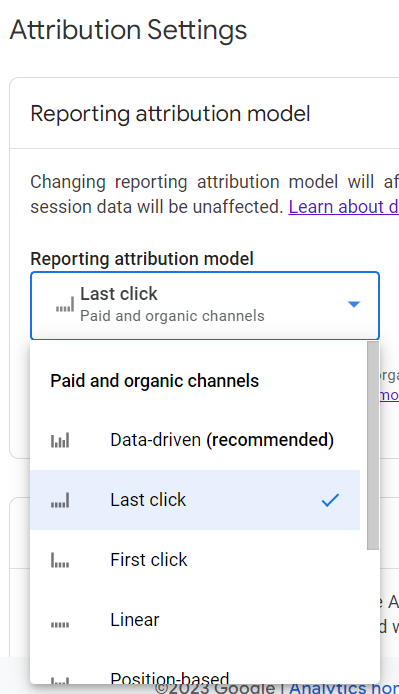Google Analytics Discrepancies
Introduction
When implementing Google Analytics alongside Optimise (or any pay for performance tracking) it is important to fully understand the differences between the tracking methodologies used and best practices to align them.
Affiliate Marketing & Partnerships work on a Cost Per Acquisition (CPA) or Cost Per Sale (CPS) model, meaning a commission is paid for a successful sale referred by an Affiliate/Publisher. There are generally 3 steps to running an affiliate programme:
| Track | Validate | Pay |
|---|---|---|
| Record the sales/conversions and referral source from the website | After the cooling off or return period has passed, validate the sales to confirm which are valid customers | Pay the Publisher a commission for the sales generated |
Background
Many Advertisers are using a general analytics platform for tracking activity across their website, including referral soures, with Google Analytics being one of the most popular. GA4 is the most recent version of Google Analytics and brings with it new models for applying attribution across different referral sources to your website.
For all newly created GA4 accounts attribution is defaulted to DDA - a Data-Driven Attribution model. This model predominately is intended for measuring Google's own Advertising channels - you can read more about this on Google's own Support Pages.
Most crucially utm_source parameters, widely utilised for attribution and cross channel deduplication throughout affiliate campaigns, are de-prioritised against Google's own Ads under-reporting the channel. See UTM overriding paragraph on this article.
Potential Impact
It's important to recognise that Analytics and Performance Tracking utilise different methodologies. Performance Tracking will focus on absolutes measuring the post-click activity from a referrer (affiliate) through to the sale event (conversion). Analytics are designed to give a more generic view and may make use of machine learning to create assumptions about the data rather than absolutes (required for attributing commission).
You may be using GA4 to deduplicate activity across different sales channels. However, due to the issues raised above, Google favouring its own sources and not treating all channels equally, this is no longer considered a practical solution when utilising pay for performance channels.
Conversions will be tracked and correctly attributed to Publishers by Optimise. However, this may change at the Validate stage due to the way GA4 DDA works and its favourable attribution to Google data sources over utm_source defined tracking. This will result in Conversions being rejected for the Affiliate channel, not being attributed correctly to Optimise Publishers causing lost commissions and reducing confidence in the accuracy (with Publishers) over the accuracy of the Campaign.
Recommendations for GA4 usage
Based on the above information provided by Google and on research conducted by various parties (readily available with a quick search on Google) our recommendation is that the DDA in GA4 is not suitable for Affiliate Tracking. Advertiser's should instead utilise "Last Click" attribution to ensure an accurate measure of all sales channels.
This can be amended in Google Analytics by navigating to Admin > Property > Attribution Settings
